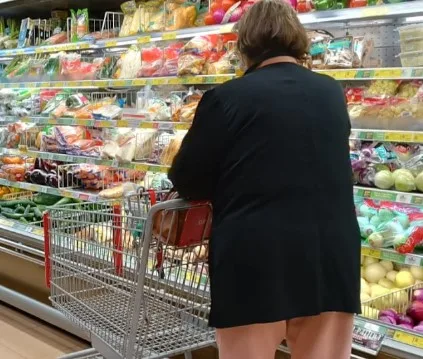Increased VAT rate takes effect today as critics warn of impact on the poor and fulfilling IMF demands
Ecuador consumers will pay more for most products beginning April 1 as the 15% value added tax takes effect. The new rate, up from 12%, is part of President Daniel Noboa’s plan to finance the fight against organized crime and to rejuvenate the economy.

Consumers will feel the impact of the new 15% VAT tax beginning April 1.
According to legislation passed by the National Assembly and a partial veto by Noboa, the 15% rate is temporary, based on “emergency” economic circumstances, and will drop to 13% when conditions improve.
Previous VAT exemptions for most food products, rent, health care, education, and various industrial expenses, remain in effect.
Among the VAT price hikes are a seven-cent increase for a gallon of regular gasoline and an additional five cents for a cylinder of LP gas.
The government says the new VAT will generate an additional $1.1 billion for the treasury in 2024 and is part of the plan to pay down debts and reduce the budget deficit. Between the new VAT and increases in other taxes, and budget reductions, the Finance Ministry estimates the government will take in an additional $4 billion in 2024.
“The country needs the extra revenue not only to pay for the war on narco terrorists but to cover budget expenses and to pay arrears accumulated in recent years,” says former Finance Minister Fausto Ortiz. “This is necessary for economic recovery. Ecuador cannot continue on its current economic path or it will go bankrupt. We must generate more revenue and cut expenses.”
Critics of the VAT hike say the exemptions will not eliminate the impact on the poor. “Let’s be honest, this is a regressive tax,” says Catholic University-Cuenca economics professor Milton Sanchez. “The exemptions at the cash register will not stop inflation since food producers, and producers of other exempt products, will pay more for things like transportation and machinery and will pass this on to consumers.”
He adds: “Even the government admits that the exemptions only cover 60% of the items in the basic family basket. Everyone will feel the impact.”
Economist Walter Spurrier says he doubts the VAT will ever drop to 13%. “This is a classic case of the slippery slope,” he says. “I think it is more likely we will see the VAT increase to the levels in other Latin American countries, probably to 18%. The government can justify it be saying the emergency continues.”
Spurrier, president of Análisis Semanal, also suggests that the government may be “following the IMF [International Monetary Fund] script” to justify new loans. “I see a real economic danger of going too far down this road,” he says.




















